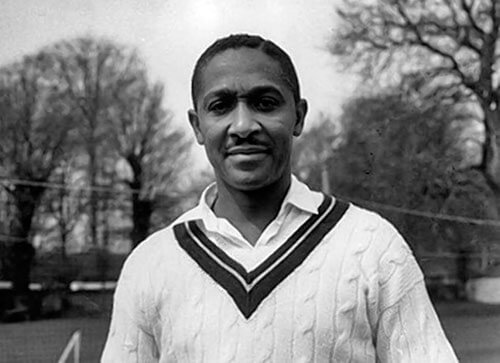There surely would have been some who believed that in 1957 Frank Worrell was a perfect fit for captaincy of the West Indies Test Cricket team for that year’s tour of England. The lords of West Indies cricket at the time were on no such track, though, and added insult to injury by handing the captain’s role to past-his-prime John Goddard of Barbados, in so doing, maintaining the tradition of whites only leading the team. The indignity was repeated for the 1958-59 tour of India, when selectors named a less experienced white Jamaican, Gerry Alexander, team captain. It was 1960-61’s remarkable tour of Australia that would give Worrell the opportunity to make his landmark debut as the first black man selected to lead the West Indies for a tour.
In the British West Indies of the 1950s and prior, cricket was no different from other institutions. White domination of plum positions was a given in sports, as elsewhere in the society. In 1948 the internationally renowned George Headley of Jamaica should rightfully have been made West Indies skipper for the Test series with the visiting English team. Instead, even the compromise arrangement of having this black player lead the team for two of the Tests was so socially toxic, the flak, combined with Headley’s injuries, resulted in his being captain for just one match, and the color bar essentially being considered unbroken, as succeeding years made clear.
Worrell’s elevation to the captaincy in 1960 was itself no cakewalk. Strong advocacy on his behalf, most notably by C.L.R. James, couldn’t be ignored by the West Indies Cricket Board. In addition to which, the winds of political reform then sweeping through the territories made stonewalling on the color question a bit tougher.
It remains an uncanny but glorious accident of cricket history, that within the span of less than two years were born in Barbados Frank Worrell, Everton Weekes and Clyde Walcott who would later attain the heights of cricket greatness as the fearsome Three Ws. Worrell, eldest of the triumvirate, established early an elegance and style both in his batting and overall demeanor on and off the field, that routinely linked the term “gentleman” with his name. Upon assuming the captaincy in 1960, he proceeded to demonstrate exceptional leadership qualities as well, that saw the profile of the West Indies team immeasurably enhanced on the international cricket scene.
Worrell had made his Test debut in 1948 when the English team toured the West Indies, and was just three runs shy of a century in his first at-bat when he got out. It was the start of a distinguished career as one of the game’s premier batsmen. In a total of 51 Tests he would record nine centuries and wind up with an average of just below 50, with a highest score of 261, made during the West Indies’ historic tour of England in 1950. At first-class level (he represented both Barbados and Jamaica and also was a professional in England’s Lancashire League), he scored 39 centuries in 208 matches, averaging over 54, and he was twice involved in partnerships of over 500 runs. He was, to boot, no slouch as a bowler. He took a total of 69 wickets in Test matches, taking seven for 70 in one match against England. He bagged 349 wickets in first-class matches.
Impressive as those numbers obviously are and although the stats in the last phase of his career didn’t match the earlier prowess, the best was indeed saved for last in the Worrell odyssey. It is said that even before he was made West Indies captain, his presence on the team in 1958-59 inspired greater effort from younger teammates, the likes of Garfield Sobers, Rohan Kanhai and Wesley Hall. Clearly, Worrell’s charisma, his genial albeit firm manner of leading his players and his determination to play entertaining cricket for the 1960-61 encounter with the Aussies gave the team the adrenalin boost they needed. The exciting first Test ended in a rare tie. And notice was thereupon served on the cricket world that a new, attacking brand of play, courtesy the Worrell-led West Indies, was now in the mix. Although Australia won that Test series 2-1, the infectious spirit exuded by Worrell’s team was such that they received a ticker-tape parade when departing. Worrell would lead the team for two victorious series, against India and England, before retiring at the end of the 1963 England tour.
What Worrell achieved with the team only underscored the folly of authorities in not naming him captain earlier. He was knighted in 1964 for his contribution to cricket. By then working for the University of the West Indies in Jamaica, Worrell was also appointed to the Jamaica Senate. After his death in 1967 at age 42, a memorial service at London’s Westminster Abbey was reportedly the first time a sports figure had been so honored at that hallowed British sanctuary.



























